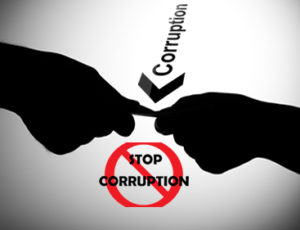Murder of Hussein-Suale casts doubt on Ghana’s anti-corruption efforts – TI
 The murder a year ago of investigative journalist, Ahmed Hussein-Suale shows that Ghana isn’t serious about fighting corruption.
The murder a year ago of investigative journalist, Ahmed Hussein-Suale shows that Ghana isn’t serious about fighting corruption.
Hussein-Suale worked with Anas Aremeyaw Anas to expose corruption in football in Ghana, leading to the removal from office of the Chairman of the Ghana Football Association, Kwesi Nyantakyi, as well as the sacking of some referees and football administrators.
Hussein-Suale who has been threatened a number of times was shot dead January 16, 2019 and one year after, authorities don’t have anyone answering for the murder.
In the Corruption Perceptions Index (CPI) 2019 released today January 23, 2020, by global anti-corruption watchdog, Transparency International (TI) states that Ghana has dropped seven points since 2014; dropping from 48 in 2014 to 41 in 2019.
“Given recent scandals, corruption is expected to feature prominently in electoral debates during the upcoming elections in 2020.
Known as a beacon of democracy in West Africa, Ghana dropped seven points on the CPI since 2014, moving from 48 in 2014 to 41 in 2019. Revelations of bribery in Ghana’s high court in 2015 and the murder of investigative journalist Ahmed Hussein-Suale in early 2019 cast serious doubts on the country’s anti- corruption efforts,” TI says.
TI however indicates that, despite these developments, there is hope for change, as in 2017, Ghana set up the Office of the Special Prosecutor with the power to investigate and prosecute cases of corruption.
“In 2019, a right to information bill was also passed. These efforts, combined with the enhanced performance of the Auditor-General’s office, offer hope for improvement,” it added.
TI also believes that given recent scandals, corruption is expected to feature prominently in debates during this year’s elections set for December.
Sub-Saharan Africa is the lowest-scoring region on the Index. With an average of 32 points, the region’s performance paints a bleak picture of inaction against corruption.
“With a score of 66, the Seychelles earns the highest mark in the region, followed by Botswana (61), Cape Verde (58), Rwanda (53) and Mauritius (52). At the bottom of the index are Somalia (9), South Sudan (12), Sudan (16) and Equatorial Guinea (16),” it says.
Noting that the Seychelles struggles with issues of money laundering, which is not measured by the CPI, several anti-corruption laws, including a recent access to information law, and a newly established anti-corruption commission have helped strengthen the country’s anti-corruption framework.
It states that additionally, despite some restrictions, dialogue between civil society and government occurs through a national civil society platform.
Significant improvers since 2012, Cote d’Ivoire (35) and Senegal (45) still have much work to do. The political will demonstrated by the leaders of both countries, which saw a number of key legal, policy and institutional reforms implemented in their early days in office, has been on a backslide since 2016, it said.
TI expresses concern that across the region, money is used to win elections, consolidate power and further personal interests.
“Although the African Union Convention on Preventing and Combatting Corruption has provisions to prevent corruption and encourage transparency in campaign financing, implementation is weak,” it said.
TI says the Index reveals that a majority of countries are showing little to no improvement in tackling corruption.
“Our analysis also shows corruption is more pervasive in countries where big money can flow freely into electoral campaigns and where governments listen only to the voices of wealthy or well-connected individuals,” it said.
TI notes that the Index ranks 180 countries and territories by their perceived levels of public sector corruption, according to experts and business people. It uses a scale of zero to 100, where zero is highly corrupt and 100 is very clean. More than two-thirds of countries score below 50 on this year’s CPI, with an average score of just 43. Similar to previous years, the data shows that despite some progress, a majority of countries are still failing to tackle public sector corruption effectively.
“Governments must urgently address the corrupting role of big money in political party financing and the undue influence it exerts on our political systems,” says Delia Ferreira Rubio, Chair of TI.
The countries topping the Index are New Zealand and Denmark, with scores of 87 each, followed by Finland (86), Singapore (85), Sweden (85) and Switzerland (85).
The bottom countries are Somalia, South Sudan and Syria with scores of 9, 12 and 13, respectively. These countries are closely followed by Yemen (15), Venezuela (16), Sudan (16), Equatorial Guinea (16) and Afghanistan (16).
By Emmanuel K. Dogbevi
